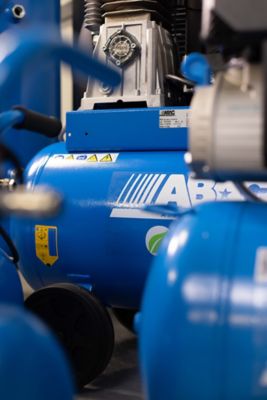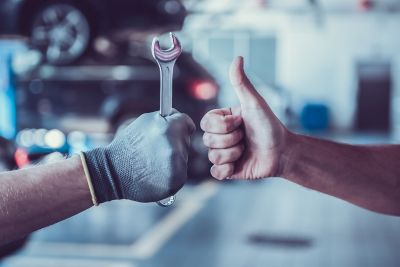Optimising air compressor performance is an essential aspect of maintaining efficient industrial operations. Compressed air is a vital utility in many factories and industrial units, but it is also expensive to generate, often accounting for up to 40% of a facility's energy bill. Therefore, implementing an optimisation process is necessary to keep energy consumption in check and reduce costs. In this comprehensive guide, we will explore various strategies and best practices to optimise air compressor performance, ensuring your system operates at peak efficiency.
Why Optimising Air Compressor Performance is Crucial
Optimising air compressor performance is crucial for several reasons:
- Energy Savings: Compressed air is one of the most expensive utilities in industrial settings. By optimising your air compressor system, you can significantly reduce energy consumption and lower your energy bills.
- Increased Productivity: An efficient air compressor system ensures a consistent supply of compressed air, which is essential for the smooth operation of various tools and equipment in your facility.
- Extended Equipment Lifespan: Regular maintenance and optimisation can prolong the life of your air compressors, reducing the need for costly repairs and replacements.
- Reduced Environmental Impact: Lower energy consumption translates to a smaller carbon footprint, contributing to a more sustainable operation.
Key Factors Impacting Air Compressor Efficiency
Several factors can impact the efficiency of an air compressor system:
- System Design: Poorly designed systems with inadequate piping, storage, and control mechanisms can lead to inefficiencies.
- Air Leaks: Leaks in the compressed air system can result in significant energy losses.
- Maintenance: Lack of regular maintenance can lead to clogged filters, worn-out components, and other issues that reduce efficiency.
- Air Quality: Contaminated air can cause damage to the compressor and other system components, leading to inefficiencies.
- Pressure Drops: Excessive pressure drops in the system can result in increased energy consumption and reduced performance.
Effective Strategies to Optimise Air Compressor Performance
Install Compressor Equipment in a Clean Environment
Installing compressor equipment in a clean environment is crucial for optimal performance. Dust, dirt, and other contaminants can clog filters and damage compressor components, leading to inefficiencies. Ensure that the compressor room is well-ventilated and free from contaminants.
Select the Right Technology
Choosing the right technology for your air compressor system is essential. Modern compressors with advanced motors and controllers are more energy-efficient than older models. Variable speed drive (VSD) compressors, for example, can adjust their speed to match the demand for compressed air, reducing energy consumption.
Ensure Adequate Storage Receivers
Having enough storage receivers in your compressed air system is important for maintaining consistent pressure and reducing the load on the compressor. Properly sized storage receivers can help buffer the demand for compressed air, ensuring a steady supply and reducing the need for the compressor to cycle on and off frequently.
Timely Maintenance and Filter Replacement
Regular maintenance is key to optimising air compressor performance. This includes replacing filter elements, checking for wear and tear on components, and ensuring proper lubrication. Timely maintenance can prevent breakdowns, reduce downtime, and extend the lifespan of your compressor.
Recalibrate the Compressed Air System
Recalibrating the network of compressed air piping is essential for better system design. This involves reducing the pressure drop between the point of consumption and the compressor, avoiding problems like erratic control signals and turbulence-induced pressure drops. An advanced central control system can help manage multiple dryer/compressor units with varying capacities and speed control motors efficiently.
Conduct Regular Air Leak Tests
Air leaks can account for a significant portion of energy losses in a compressed air system. Conducting regular air leak tests by experts can help identify and fix leaks, optimising compressor operations and keeping production costs under control.







